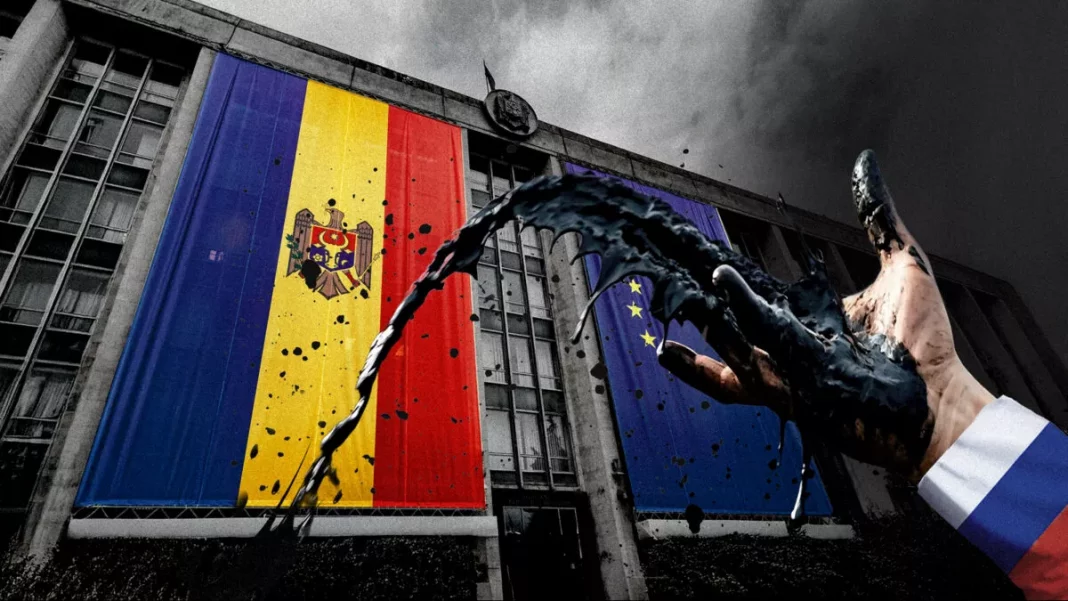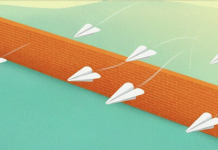By EUvsDisinfo
Moldova is rapidly moving towards parliamentary elections set for 28 September. Seen as decisive for the geopolitical orientation of the country, the contest for the hearts and minds of potential voters is in full swing.
The EU in focus
Pro-Kremlin actors are pulling out all the stops to convince Moldovans to abandon European integration and vote for pro-Russian forces. Every possible argument has been deployed to manipulate and confuse the electorate under the disguise of creating a political alternative.
As always, Kremlin spin-doctors see little merit in factual correctness or common sense when making their allegations. Representatives of a country where no protests are allowed casually make accusations about dictatorship in a country where everybody is free to protest. Allegations that the opposition is prosecuted are made by people promoting closer ties with a country where opposition politicians are murdered.
The EU-Moldova partnership is a favourite target of the Kremlin’s disinformation machine. The evil EU hand is everywhere to be found, be it the Moldovan government acting on direct orders from Brussels or the EU cynically closing its eyes to local illegalities.
On 4 July 2025, the first ever EU-Moldova summit took place in Chisinau. Moldovan President Maia Sandu hosted European Council President António Costa and European Commission President Ursula von der Leyen. The Summit was not only of symbolic importance, reflecting the strength of the partnership, but it also brought important announcements. Among other measures, the EU announced the disbursement of €270 million under the €1.9 billion Moldova Growth Plan which will drive key reforms and boost Moldova’s economy.
Overall, the Summit marked a significant milestone in EU-Moldova relations and generated exceptionally wide media coverage, with over 70 national outlets reporting on the event in detail. The tone of news reporting remained predominantly neutral or positive toward the EU.
Unsurprisingly, the event also became the target of a sophisticated and multi-layered disinformation campaign spearheaded by pro-Kremlin networks and focussing mostly on social media.
The pre-summit false news blitz
Days before the Summit, ‘Matryoshka’, a Russian-linked information manipulation and interference operation, launched a barrage of doctored videos falsely branded with European media logos like Deutsche Welle and Euronews. One video claimed that a conflict had broken out between High Representative/Vice-President Kaja Kallas and President Maia Sandu. Another clip falsely warned of a potential terrorist threat during the Summit in an attempt to stain its public perception.
These disinformation activities primarily targeted the EU-based Moldovan diaspora. They were designed to sow doubt about the legitimacy and safety of the Summit, all while reinforcing a narrative about Moldova’s supposed loss of sovereignty under EU influence.
On the day of the Summit, a fake bomb alert at Chisinau Airport tested Moldova’s security preparedness. Police diffused the threat, saying it was anticipated.
Meanwhile, fugitive oligarch Ilan Shor’s Canal 5, using protests of his supporters in pre-assigned restricted zones, pushed the nonsensical claim that the EU is attempting to transform Moldova into a dictatorship. The outlet aired reports accusing law enforcement of detaining 20 protesters in violation of democratic norms.
Spinning the summit
Pro-Kremlin actors flooded social media platforms with divisive rhetoric. The financial assistance announced during the Summit was reframed as a ‘debt trap’, so that future generations of Moldovans would be forced to work just to repay hundreds of millions to the EU. The event itself was dismissed as mere political theatre aimed at boosting Sandu’s popularity ahead of Moldova’s September parliamentary elections.
The KP Moldova Telegram channel claimed that EU leaders had made it clear at the Summit that they would interfere in the Moldovan elections on the governing party’s side, while also declaring that ‘they sign a joint declaration that they will not allow anyone to steal the choice of the Moldovan people.’ Trying to tap into people’s fears, the channel promoted disinformation linking the EU to a dystopic future with ‘abandoned homes, old people dying alone, abandoned graves and debt slavery’.
Meanwhile, other sources alleged that the Summit had achieved nothing. The Russian Sputnik Moldova 2.0 Telegram channel quoted journalist Dmitrii Ciubacenco after the summit saying: ‘The Moldova-EU summit has ended in Chisinau. It’s essence is: bla-bla-bla.’
Digital warfare and layered influence
While independent and reliable media outlets based their reporting of the Summit and its impact on facts, pro-Russian actors stoked disinformation using emotionally charged narratives.
Telegram was the weapon of choice for those spreading disinformation narratives, while Facebook became a battleground of comments, where divisive content thrived with the help of algorithmic manipulation. Meanwhile, other disinformers used TikTok to deliver satirical takes that undermined trust in Moldova’s pro-EU stance, especially among younger audiences.
Overall, this diverse set of tactics and posting of misleading content across several platforms aimed to create an illusion of widespread EU-scepticism among the public.
Frames to obscure and twist viewpoints
The alleged loss of sovereignty (for example here, here and here) and Sandu’s, and her party’s, supposed authoritarianism (like here or here) are shaping up as two major themes pro-Russian disinformation is constantly trying to project. They have become the frames, or meta-narratives, connecting the many fabricated individual stories and grievances used to provide meaning and sense to the individual disinformation claims.
In a context of heated political campaigns and continuous efforts to undermine trust in elections and democracy at large, these two topics can be expected to be heavily promoted in the period ahead. The Kremlin and its proxies, as part of its broader effort to compromise democratic institutions and the electoral process, is laying the groundwork to contest the legitimacy of the parliamentary election results.
The loss of sovereignty has emerged as a favourite disinformation trope, gaining traction following the elections in Romania where pro-Russian candidates attracted a big number of supporters by alleging that the EU is ‘stealing’ the country’s independence.
Looking ahead: the communication challenge
The most exploited vulnerabilities are the economic difficulties of the population, the fear of regional instability, and chronic distrust in state institutions. There is a clear convergence between disinformation messages related to the economy – poverty, collapsing agriculture – and the geopolitical ones such as the loss of sovereignty and the danger of war. This combination seeks to create a sense of imminent collapse in which a return to a pro-Russian policy, masked under slogans about ‘patriotism’, ‘neutrality’, and ‘the national interest’, is presented as the only solution.
Moreover, disinformation narratives pushed in previous campaigns may pop up again. Do not be surprised if you hear about alleged EU deportation camps, Moldova being transformed into a military hub, or even the country being dragged into the war.
Following a testing phase during the 2024 elections and months of shaping its disinformation operations, the Kremlin’s pre-election offensive is in full swing. Countering these coordinated efforts to deceive and manipulate Moldovan voters will be a top priority for Moldovan institutions and its partners in the run-up to elections.
Moldovan authorities seem to be well aware of the challenges ahead as seen from the recent assessment of the Supreme Security Council, which identified at least ten main instruments Russia plans to use in order to interfere in the electoral process. Information manipulation and interference campaigns feature prominently on this list. This statement provoked immediate attacks and commentary from the pro-Kremlin ecosystem, as well as an obligatory denial from official Kremlin sources.
Moving beyond public statements, recently the government has also been taking concrete steps to address these challenges, like establishing a coordination centre for hybrid threat response and blocking Russian apps and websites used to retransmit banned Russian TV content.
By EUvsDisinfo





